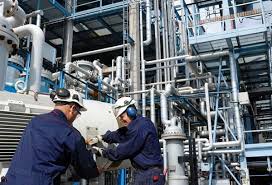Training Course on Hydrotreating and Hydrocracking Process Technology
Training Course on Hydrotreating and Hydrocracking Process Technology is meticulously designed to offer professionals a deep understanding of catalytic conversion, sulfur removal, feedstock upgrading, and diesel and naphtha hydroprocessing alongside equipping them with the technical skills and analytical frameworks required to maximize efficiency and throughput in refining operations.

Course Overview
Training Course on Hydrotreating and Hydrocracking Process Technology
Introduction
In today’s rapidly evolving energy landscape, hydrotreating and hydrocracking process technology plays a pivotal role in refining operations, helping industries meet stringent environmental regulations and product specifications. Training Course on Hydrotreating and Hydrocracking Process Technology is meticulously designed to offer professionals a deep understanding of catalytic conversion, sulfur removal, feedstock upgrading, and diesel and naphtha hydroprocessing—equipping them with the technical skills and analytical frameworks required to maximize efficiency and throughput in refining operations.
Participants will learn to manage and optimize process performance, troubleshoot operational issues, and implement advanced strategies for catalyst management and reactor design. With real-world refinery case studies, this course emphasizes sustainability, economic performance, and compliance—key elements in modern petroleum refining.
Course Objectives
- Understand core principles of hydrotreating technology and feedstock preparation.
- Explain hydrocracking mechanisms and catalyst function.
- Identify process variables impacting product yield and selectivity.
- Analyze reaction kinetics and their influence on reactor performance.
- Apply catalyst selection techniques for maximum operational efficiency.
- Manage fouling, coking, and catalyst deactivation in real-time operations.
- Design and operate hydrotreaters and hydrocrackers using simulation tools.
- Monitor and improve hydrogen utilization and gas treating units.
- Implement environmental compliance in sulfur recovery and emissions control.
- Conduct process troubleshooting using case-based diagnostics.
- Apply knowledge to improve diesel desulfurization and aromatics saturation.
- Optimize energy efficiency and process economics using KPI frameworks.
- Interpret P&IDs and control schemes for process instrumentation.
Target Audience
- Process Engineers
- Chemical Engineers
- Refinery Operation Managers
- Technical Service Providers
- Engineering Consultants
- Production Supervisors
- Catalyst Vendors
- Environmental Compliance Officers
Course Duration: 5 days
Course Modules
Module 1: Fundamentals of Hydrotreating Technology
- Overview of hydrotreating objectives and reactions
- Feedstock characteristics and contaminants
- Reaction chemistry of sulfur, nitrogen, and metals removal
- Hydrotreating catalyst types and life cycles
- Process flow diagrams and reactor types
- Case Study: Diesel hydrotreating unit performance analysis
Module 2: Introduction to Hydrocracking Technology
- Process configurations: single-stage vs two-stage
- Reaction mechanisms: cracking and hydrogenation
- Catalyst types and bifunctional behavior
- Hydrocracking unit layout and design principles
- Key operating parameters and their impacts
- Case Study: Optimizing hydrocracker yield for jet fuel
Module 3: Catalyst Technology and Management
- Catalyst loading and activation procedures
- Catalyst fouling, coking, and regeneration
- Activity monitoring and change-out schedules
- Role of catalyst vendors and supply chain
- Performance improvement strategies
- Case Study: Catalyst deactivation in FCC feed hydrotreater
Module 4: Hydrogen Management and Utility Systems
- Hydrogen production and purification techniques
- Hydrogen consumption balancing and efficiency
- Recycle gas compressors and gas treating
- Hydrogen plant integration in refineries
- Troubleshooting hydrogen starvation issues
- Case Study: Hydrogen pinch analysis in a hydrocracker
Module 5: Reactor Design and Process Simulation
- Fixed-bed reactor design parameters
- Temperature control and quenching systems
- Reactor internals and pressure drop considerations
- Process simulation tools and dynamic modeling
- Scale-up from pilot to commercial units
- Case Study: Reactor optimization using Aspen HYSYS
Module 6: Environmental Compliance and Emissions Control
- Sulfur recovery units and emission standards
- Effluent treatment and sour water management
- Emission measurement and control strategies
- Regulatory frameworks (EPA, IMO, etc.)
- Green refinery initiatives and carbon reduction
- Case Study: Upgrading a refinery to meet ULSD standards
Module 7: Process Optimization and Troubleshooting
- Performance monitoring and KPI tracking
- Root cause analysis of process upsets
- Heat integration and energy recovery techniques
- Advanced control strategies (APC/DCS)
- Debottlenecking and capacity enhancement
- Case Study: Turnaround diagnostics in hydrotreating unit
Module 8: Future Trends and Digital Transformation
- Digital twin applications in hydroprocessing
- Machine learning for predictive maintenance
- Automation and real-time monitoring systems
- AI-based catalyst life prediction tools
- Data-driven optimization of product slate
- Case Study: Digital transformation in hydrocracking plant
Training Methodology
- Instructor-led technical sessions with interactive discussions
- Real-world case studies and problem-solving workshops
- Process flow simulations and live demos with process models
- Group activities, quizzes, and scenario-based challenges
- Knowledge checks and feedback for continuous learning
Register as a group from 3 participants for a Discount
Send us an email: [email protected] or call +254724527104
Certification
Upon successful completion of this training, participants will be issued with a globally- recognized certificate.
Tailor-Made Course
We also offer tailor-made courses based on your needs.
Key Notes
a. The participant must be conversant with English.
b. Upon completion of training the participant will be issued with an Authorized Training Certificate
c. Course duration is flexible and the contents can be modified to fit any number of days.
d. The course fee includes facilitation training materials, 2 coffee breaks, buffet lunch and A Certificate upon successful completion of Training.
e. One-year post-training support Consultation and Coaching provided after the course.
f. Payment should be done at least a week before commence of the training, to DATASTAT CONSULTANCY LTD account, as indicated in the invoice so as to enable us prepare better for you.